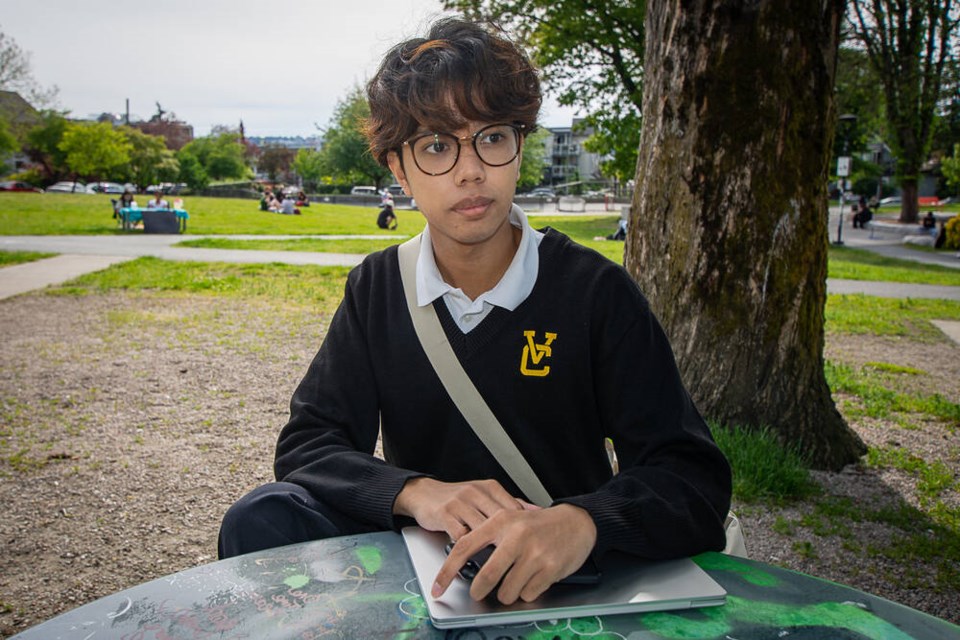A teenage girl and her mother come into North Shore Family Services to get a free grad dress. They live in a car.
A high school student escapes abuse at home. Luckily, one of four beds at the Youth Safe House is free, so he has a place to stay.
At the Travelodge site on Marine Drive, 36 tenants will be evicted from their temporary homes as of July 31.
These true stories were told in District of North Vancouver chambers on May 27, as council unanimously passed a motion to seek opportunities to build more transitional housing.
Now, district staff have been directed to report back to council with solutions for North Vancouver residents who are homeless or precariously housed, like those living at the Travelodge site.
Staff will also look into housing types that can be built within six to twelve months, including modular homes, pallet homes and other prefabricated concepts used elsewhere in the province.
At the start of the council meeting, several housing advocates spoke in support of the motion. Also there to get behind the initiative was 18-year-old Zach Caspe, the student who had found refuge at the North Shore Youth Safe House two years ago after leaving an abusive household.
“At 16, I had to face the decision between living under a stable roof or being safe,” he said. “As a youth, I think it’s unfair that we have to choose between safety and security or stable housing.”
Now living with a caring family, and set to attend UBC this fall, Caspe credits his current good fortune to getting one of four beds at the safe house. Where would he be if they were all full?
“Honestly, that thought terrifies me,” he said.
Speaking to the North Shore News, Caspe said the need for more transitional housing is crucial. During his seven-month stay at the North Shore safe house, several youth were turned away, he said.
“Transitional housing is a safe space for youth to stay in while their situation is figured out,” Caspe said.
At the safe house, Caspe was put in touch with a social worker, who helped him develop a plan to move forward, he said.
“During that process, you don’t have to worry about your safety or where to find food,” Caspe said. “That’s why transitional housing, especially for youth, is very important.”
North Shore lacks provincial support on housing compared to other municipalities, mayor says
Introducing her motion to council, Coun. Catherine Pope said the goal is to build housing fast to keep people off the street until the district finishes building permanent supportive housing, like the project on East Keith Road.
“We are facing a potential tsunami of unhoused and homeless people on the North Shore. It is the inevitable impact of the housing affordability crisis,” she said. “Frontline outreach workers are already seeing it because the shelter is consistently full, and so are other options.
“We have a moral imperative to act fast to help our most vulnerable residents, many of whom will be forced to live on the street,” Pope said.
Providing examples of potential solutions, she pointed to 55 modular homes built by the Squamish Nation on Capilano Road, and 60 tiny prefab homes constructed in Kelowna.
Coun. Jordan Back said he had visited the Squamish Nation modular housing, and advocated for creative solutions while more permanent options are still years away from being built.
“We need to be able to help people now,” he said.
Mayor Mike Little said that he’s been very supportive of projects that house adults and youth facing homelessness, but that the provincial government has offered less support on the North Shore compared to other municipalities.
“The province is going around and buying land and buying buildings in other municipalities in Vancouver, in Burnaby, in Coquitlam, in New Westminster, in Kelowna, in Penticton, and yet, when it comes to the North Shore, they expect us to buy the land and contribute the land,” he said.
“I find that very unfair,” Little said. “If the province is committed to producing shelter spaces … in our community, they’re going to have to make the same kind of commitment.”
Coun. Lisa Muri said she shares the mayor’s frustrations when it comes to the district picking up more costs associated with building supportive and transitional housing.
In the short term, there are some brownfield opportunities to look at, she said.
“We do have the fire hall that’s going to be vacant,” Muri said. “I’m wondering if there can’t be some modular put in there.”
“We’ve also got property down on Mountain Highway, we’ve got some houses there,” she said. “That would be simple. Buy a house that has five bedrooms and put a mother and a daughter who’s living in their car, and was another mother and daughter fleeing violence, and there’s the solution to your problem.”
A date has not yet been set for the matter to come back to council.




